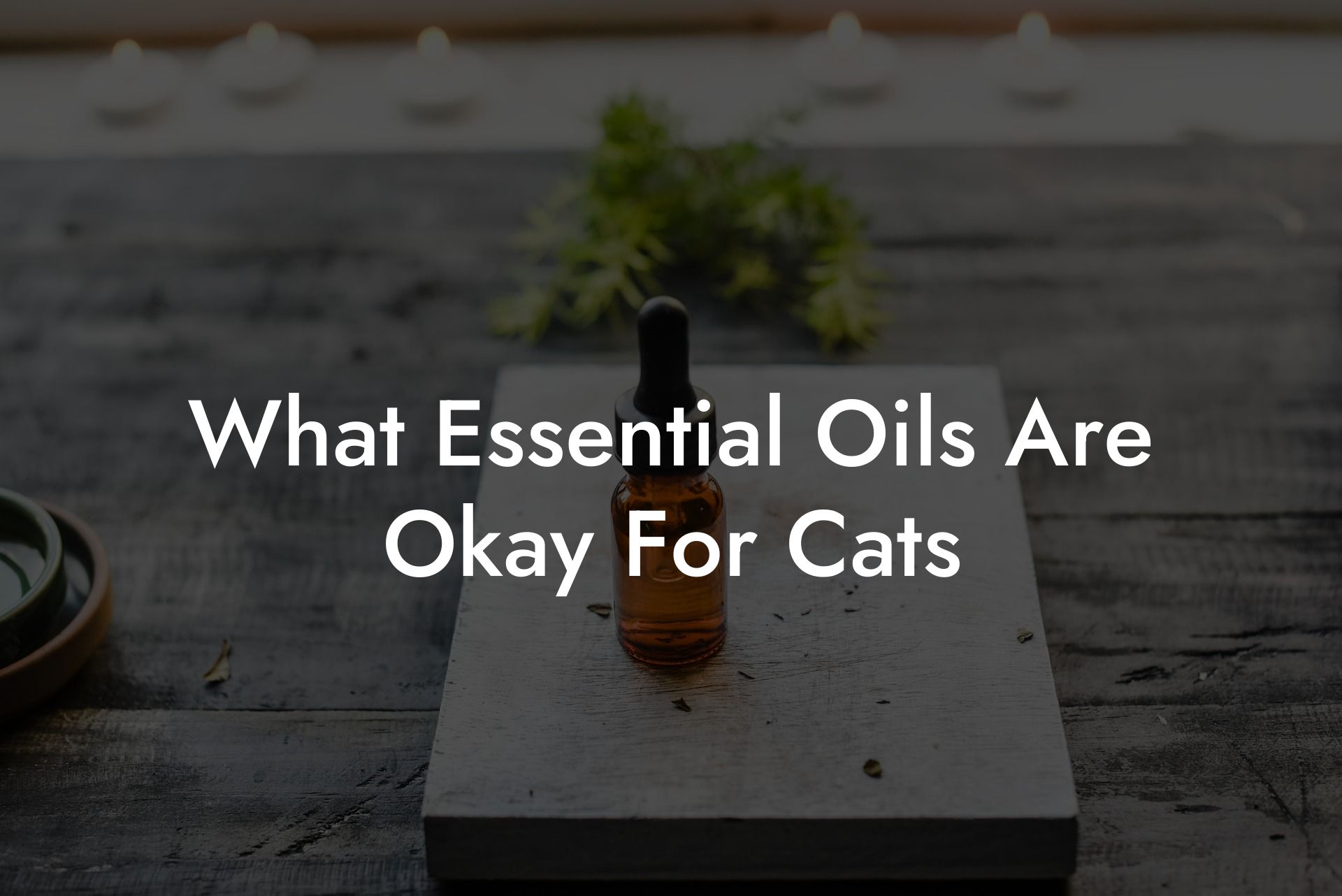Are you aware that certain essential oils can be harmful to your feline friends? As a cat parent, it’s crucial to know which oils you can use that are safe and beneficial for your beloved pet. In this article, we’ll explore the world of essential oils and their effects on cats, as well as provide you with a comprehensive list of cat-friendly essential oils and tips for using them safely and effectively.
Table of Contents
Why Essential Oils Can Be Dangerous for Cats
Cats lack a specific liver enzyme called glucuronosyltransferase, which is responsible for metabolizing certain compounds found in essential oils. This makes them more sensitive to these oils and, if exposed to harmful ones, can lead to toxic build-up in their bodies, causing various health problems, and in some cases, even death.
Taking this into account, it is crucial to know which essential oils are safe and which ones to avoid for your feline friends.
Essential Oils Safe for Cats
The following list of essential oils have been deemed safe for use around cats, provided they are used in moderation, and are properly diluted.
1. Lavender
Lavender oil is known for its calming and relaxing properties, making it a great option to help your cat deal with stress and anxiety.
2. Chamomile
Chamomile oil is commonly used to calm upset stomachs, reduce anxiety, and promote a sense of overall well-being.
3. Rosemary
Rosemary oil has been reported to provide general relaxation and can be used to help cats with certain digestive issues.
4. Blue Tansy
Blue Tansy oil has powerful anti-inflammatory properties and can help soothe minor skin irritations or provide relief from joint pain.
5. Cardamom
Cardamom oil can help with digestive issues and has a mild calming effect.
Essential Oils to Avoid for Cats
The following essential oils should be avoided around cats due to their high toxicity levels:
– Eucalyptus
– Tea Tree
– Citrus (lemon, orange, grapefruit)
– Peppermint
– Cinnamon
– Clove
– Thyme
– Wintergreen
Tips for Using Essential Oils around Cats Safely
- Always dilute essential oils with a suitable carrier oil, such as fractionated coconut oil, before topical application.
- Use a high-quality essential oil diffuser to evenly disperse the oil. Be sure to leave ample room for your cat to exit the room if they feel overwhelmed by the scent.
- Monitor your cat’s behavior for any signs of discomfort or adverse reactions to the essential oils. If you notice any changes, stop using the oil immediately and consult a veterinarian.
- Consult a veterinarian or aromatherapist with experience working with cats to get personalized recommendations tailored to your cat’s specific needs.
What Essential Oils Are Okay For Cats Example:
Imagine you have a cat who is often stressed due to loud noises in your living environment. You could use lavender essential oil to help calm and relax your feline friend. First, diffuse the oil in a room where your cat frequents, ensuring a clear exit for them in case they feel overwhelmed by the scent. Alternatively, you could create a calming spray by adding a few drops of lavender oil to a small spray bottle filled with distilled water. Lightly spray the diluted lavender oil onto your cat’s bedding, or any area they usually relax. Remember to watch for any signs of discomfort or adverse reactions in your pet and consult your veterinarian as needed.
We hope this guide has given you the essential knowledge on which oils are safe and beneficial for cats, as well as provided insight on practical usage tips. At Oshu Oils, we are dedicated to providing our readers with the utmost information and guidance on essential oils for an improved overall well-being. If you found this guide helpful, please share it with fellow cat owners and explore other guides on our blog. Don’t forget to browse our range of artisan essential oils expertly crafted by our aromacologists to take the first step in elevating your and your cat’s quality of life!





















